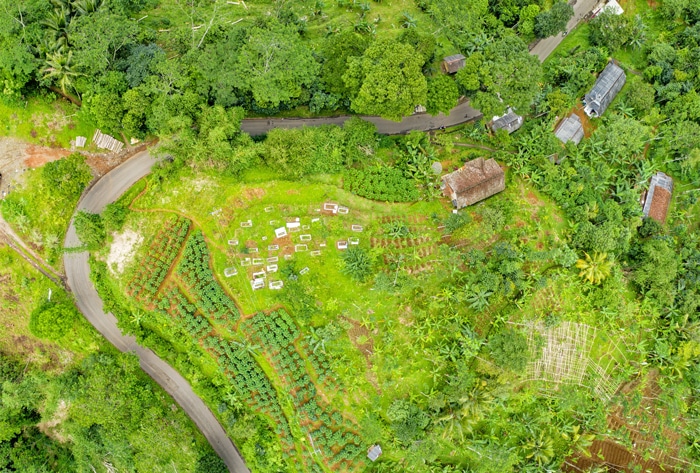

On October 20, 2021, the Behavioral Insights Team published a research paper (commissioned by the United Kingdom’s Department for Business, Energy, and Industrial Strategy) titled “Net Zero: principles for successful behavior change initiatives.” The research paper was published alongside the UK’s newest Net Zero Strategy report, which outlines how the government plans to reduce emissions and achieve their net zero target by 2050.
Unfortunately, the research paper—which offers suggestions for how the government might encourage average citizens to support the effort, by advertising, requesting, and incentivizing or rewarding behavior changes—was only published for a few hours before it was taken down and its findings downplayed. The reasons provided for the retraction were 1) that it is a research paper, not government policy and 2) the government didn’t want to tell people what to do.
The good news is, nothing ever lands on the internet completely unnoticed: even though the research paper was only briefly available as originally published, a few quick hands copied the document and shared it elsewhere.
It opens with a disclaimer: “Any views expressed within [the report] are not necessarily the views of the UK government, nor does this work reflect UK government policy.” The authors then recommend a multi-pronged approach to reducing greenhouse gas emissions; though created for the British government, the recommendations could apply anywhere in the world. A number of the recommendations relate to food choices.
Ultimately, we can only control our own behavior. We could have a massive impact if we take direct action where we can.
I will hit the highlights of the report related to food, and offer some added information and suggestions for implementation. If we could implement the recommendations ourselves, and encourage friends and family to do the same, we could decrease our individual carbon footprints. And if we could do that, we might possibly save the world.

1. Take time to learn about the impacts of our food choices. Estimates of animal farming’s contributions to global greenhouse gas production range from 14.5% to 57% to even as much as 87%. The report suggests a 35% reduction in ruminant meat consumption (including cattle, sheep, deer, and goat). I would encourage everyone to reduce the consumption of all animal products, not just from ruminants, by 35% or more.
2. Teach your children and grandchildren about the impact of food, including its impact on both human and planetary health. Teach and encourage them to cook and eat whole plant-based foods. Create meals, snacks, and sack lunches that show you are walking the talk.
3. Push school districts to decrease the amount of animal products served on campus. Animal foods can be replaced by delicious dishes featuring beans, lentils, and protein-rich grains that are less environmentally damaging.

4. Do what you can to decrease food waste. Buy food in appropriate quantities, use what you purchase, and teach children to only take what they will eat. Discouraging overeating.
5. If you are a kitchen or food service manager, or if you are responsible for planning conferences, meetings, or parties, do whatever you can to avoid putting animal products on the menu. Feature plant-based foods prominently and be proud of it! Make a statement about the menu being designed to support net-zero greenhouse gas emissions.
6. Be an informed consumer. Don’t just go along with what advertisers promote as healthy, convenient, or fun. Read the ingredients on food packages.
7. Learn one new plant-based recipe every week. Improve your kitchen skills and expand your recipe file. Share what you learn.
8. Ask schools, grocery stores, restaurants, coffee shops, workplace cafeterias, hospitals, etc., to carry more whole food, plant-based (WFPB) items.
9. If you belong to a faith-based organization that serves meals from time to time, ask them to offer more plant-based options.
10. Support local farmers to decrease the effects of transporting farm products over long distances. If you are a farmer or if you know farmers, see about connecting with local restaurants, schools, and senior centers. Become their source for local plant products.
11. Learn about local, sustainable sources of produce. Support your local farmers’ market! Go early and often!
Achieving net-zero carbon emissions by 2030 or 2050 will require conscious effort and considerable policy change from governments and corporations. However, so far, our governments and companies have mostly failed to do what needs to be done.
In the case of this report, the UK government apparently doesn’t even want the world to know that they know what needs to be done. They authorized a team of experts to research and write up a report on how best to encourage behavior change, and then almost immediately retracted the publication.
So why should we wait for top-down policy change? It’s quite possible we don’t have time to wait for their interventions. And ultimately, we can only control our own behavior, anyway. We could have a massive impact if we follow the suggestions above and take direct action where we can. Will you? Now is the time!

Copyright 2024 Center for Nutrition Studies. All rights reserved.